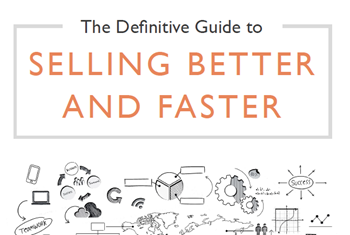Since the COVID-19 pandemic hit and the chance to attend in-person events ended, there’s been a rise in the use of virtual events in an attempt to continue reaping those benefits, yet some business leaders are still unsure about the merits of integrating virtual events into their marketing and sales processes.
In fact, hosted virtual events are 2.3x more likely to have a conversion rate of more than 40%, according to a Gartner 2020 Benchmark study. There are additional benefits to virtual events that might even give them the edge over in-person ones, as one B2B marketing executive in the tech sector once said:
The engagement of virtual events
The true value of a virtual event is in the quality of leads you can generate there. Inbound content marketing efforts typically don’t inspire much engagement, but virtual event leads attend with a specific purpose or solution in mind, and the depth of that engagement is going to help your sales team out at the other end.
These prospects invest their time in your event to gain valuable insights, which is great for your potential ROI. But they need to have that investment returned by the brand that has provided that insight. Putting content together for the event is important, but it’s equally important to follow up and ensure you’re correctly lead nurturing post-event.
Leaving virtual events to sit untouched (or worse, to hard sell them straight away) can be catastrophic. Therefore, a dedicated and focused post-event strategy is paramount to turning virtual event leads into revenue.
How to make the most of your virtual events
Here’s some tips on how to ensure the work that goes into organizing, promoting and delivering your virtual event doesn’t go to waste:
1. Post-event review
Have a debrief with your team to assess how things went at your virtual event.
Was it a success against the pre-event objectives you set? Or were there some unexpected positives or negatives that you can take into account for next time?
Post-event reviews are vital in being able to adjust and adapt for future events and will also leave your team energized and motivated to continue making a success of these functions.
2. Gather feedback
Always ask your event attendees and participants for feedback. This is a vital part of the learning process for you in terms of improving your skill set with virtual events.
More importantly, it gives your audience a chance to remain engaged after the event has ended by giving their opinions. It should be the first thing you mention in your follow-up communications and, if possible, bring it up towards the end of the event so your attendees know to expect it and understand its importance in shaping future events.
3. Collect your material
Virtual events are great because you can capture almost everything that goes on for future use. You can put pictures into a gallery to share on social media and create a buzz or transform it into an on-demand video.
This material can be used as marketing content in the future but, crucially, it also keeps potential leads engaged, reminding them of the insights they gained and giving them a chance to spot themselves in photos/videos and interact with other guests to share their experiences.
4. Arrange an after party/connect your guests
This is where data insight can really come in handy. Events are all about creating a human connection around a shared purpose, and as a virtual event host/provider, you have the chance to facilitate the kind of spontaneous connections that event attendees really value.
There’s some heavy lifting involved with this, but it can really pay off. Go through your audience list and think about who asked questions and what they were most interested in. What industry do they work in, or what challenges are they currently facing?
This way, you can group attendees together around common goals. Create a breakout room or reach out to them via email to connect them. This will generate a feeling of deep engagement and fulfilment among your guests and help to sustain the conversation around your message.
5. Adjust, adapt, plan the next one
Now your virtual event cycle has come full circle. If you’ve followed up properly, you’ll be able to use the insight and buzz generated by your first event to start putting the next one together.
Keep your past attendees and current high-quality leads engaged by teasing them with content for your next event.
This step is as much part of the pre-event preparation as it is about post-event follow up; it’s where you’re going to use the knowledge and experience of past events to improve your offering for the next one.
You don’t want all your painstakingly produced content to fall into post-event oblivion, so consider making your future events the next step in a series that your guests will continue to feel the value of over time.
We’re all missing the sense of community that in-person events offer, but with a bit of clever organization and the correct follow-up messages, we can make virtual events every bit as immersive, while at the same time developing high quality leads and boosting B2B sales.
Access the latest business knowledge in Management
Get Access





Comments
Join the conversation...